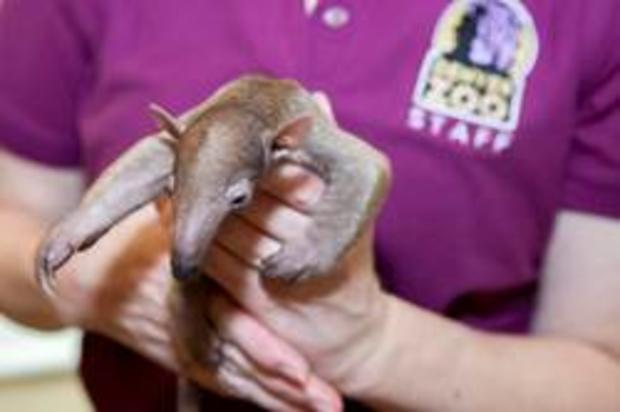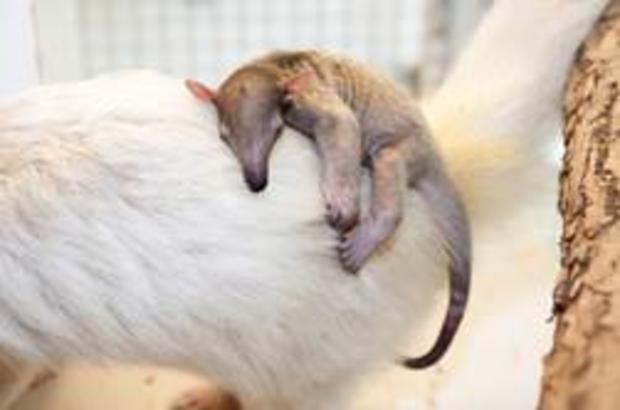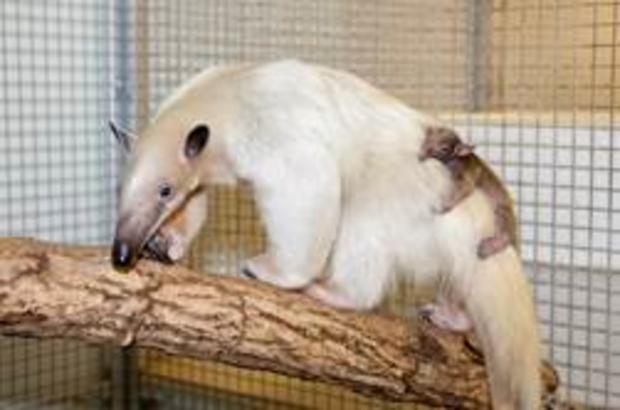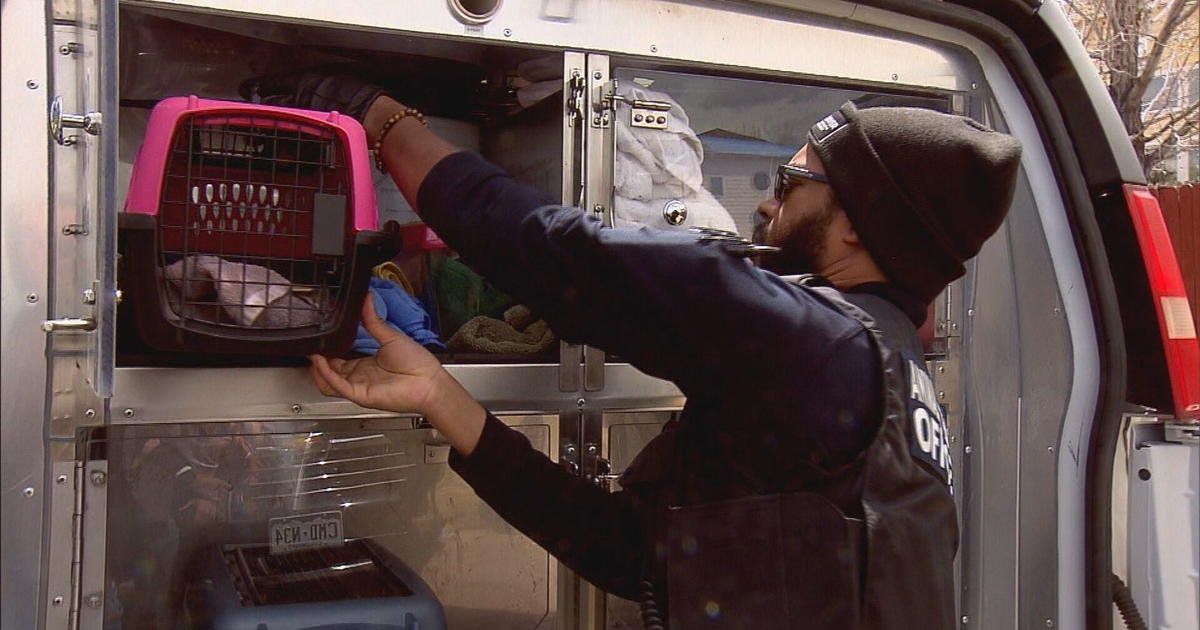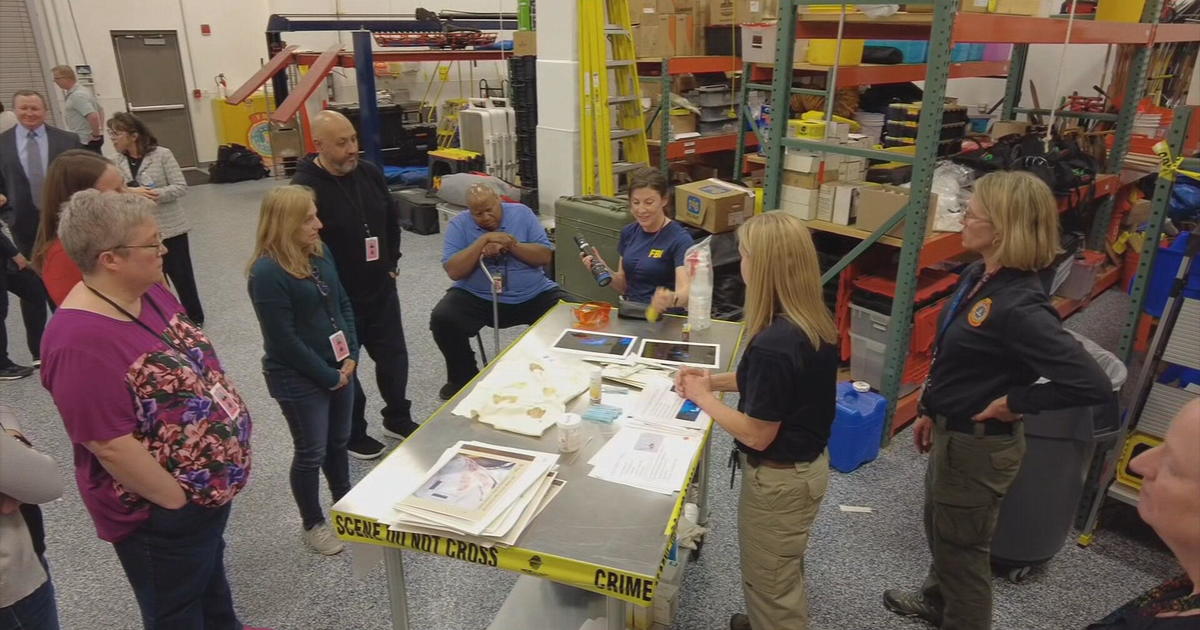Denver Zoo Welcomes Second Tamandua Birth
DENVER (CBS4)- The Denver Zoo is celebrating its second-ever birth of a southern tamandua, a species of anteater.
The new arrival is a male named Salvador born on March 12. Salvador is currently bonding with his mother, Rio, behind the scenes at the Zoo's Gates Animal Housing Center.
Visitors won't be able to see him on exhibit but he may meet them as a member of the Zoo's Education collection.
This is the second birth for both Rio and her mate, Quito. Rio was born in November 2004 at Sedgwick County Zoo in Wichita, Kansas and came to Denver Zoo in April 2005. Quito was born in August 2012 at Reid Park Zoo in Tucson, Arizona and arrived at Denver Zoo in April 2013.
The two were paired under recommendation of the Association of Zoos and Aquariums (AZA) Species Survival Plan (SSP) which ensures healthy populations and genetic diversity among zoo animals. Fortunately, the couple has proven to be an excellent match.
As their species is native to South America, zookeepers decided to name this tamandua family after South American cities. Salvador is named after Salvador, Brazil. His older sister, Cayenne, born last year and now at the Smithsonian's National Zoo, is named after the capital of French Guiana. Rio is named after Rio de Janeiro, Brazil, and Quito is named after the capital of Ecuador.
Southern tamanduas are often called lesser anteaters and are found in areas east of the Andes, from Venezuela to Argentina and Uruguay. Their habitat ranges from savanna and thorn scrub to rainforests and they are well adapted to life both in trees and on the ground. They use their long tongues to reach up to 16 inches to feed on insects such as termites and ants.
Although they are widespread, they are uncommon. Tamanduas are vulnerable due to loss of habitat and human pest control, which has reduced the populations of termites and ants. Hunters also often kill tamanduas, claiming they are killing their dogs, but they are really hunted for their meat. They can also be hit by cars.
LINK: denverzoo.org
